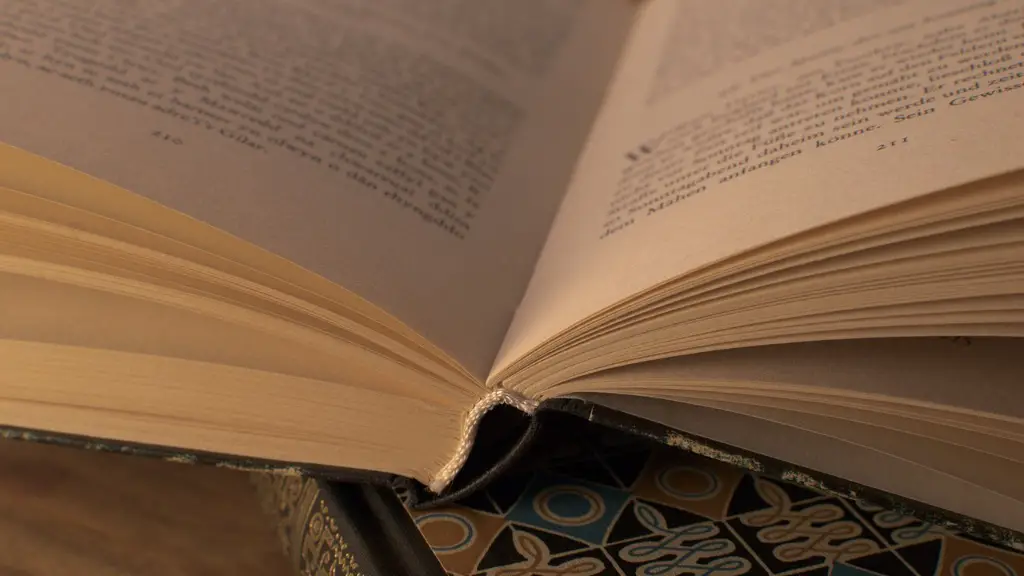The Perception of Poetry
As a literary form, poetry has been largely absent from modern student’s lives. The decline in its popularity began during the latter half of the 20th century, when poetry’s primary role as a part of lectures and classroom activities went from indispensable to unnecessary. Part of the decline can be attributed to the rise of the internet, which glopped up most poetry’s focus on ideas and thoughtful consideration and left little time for the complex, structured language and creative writing that’s essential for effective poetic expression. In addition, the widespread use of word processors, spell checkers and other writing tools makes poetry seem outdated and uninspiring to many young people.
At the same time, there’s a disconnect between many students and the values that poetry is supposed to embody – creativity, self-expression, and the beauty of language, structure and sound. In this day and age, students are more concerned with the immediacy of results – in one sense, it’s easier and faster to express yourself on social media through short, casual messages than it is to craft carefully constructed poetry.
The Competition and Pressure of Poetry
Aside from the lack of relevance within the modern day student lifestyle, there’s also significant competition and pressure coming from other content that students consume every day. With films, music and even video games being made available at the press of a button, there are any number of options available for modern students to spend their spare time or fill their days with. This means that when it comes to leisure and entertainment, many students simply have no interest in poetry.
Furthermore, there’s the pressure that comes with exploring the literary form. Poetry is a very personal artform and requires a high degree of concentration and focus. It also requires a solid understanding of grammar, structure and language as well as an active imagination and creativity. Most of all, it requires time and effort to create and this is where a lot of students become overwhelmed and turn away.
The Benefits of Poetry
Despite the apparent dismissiveness of the average student towards poetry, there’s a wealth of potential benefits that come with exploring this literary form. By forcing students to slow down and focus on the specifics of language and sound, they’re able to appreciate the beauty of words and develop a greater understanding of grammar and structure. Additionally, through the combination of creativity and analysis students are able to build a greater appreciation for self expression and develop a more profound understanding of themselves.
In addition, poetry provides a valuable escape and can provide a much needed outlet for stress and anxiety. By allowing yourself to explore and express the emotions that come with difficult life events, you become better able to cope with your feelings and better able to find balance in life.
The Value of Poetry in Education
In addition to the personal benefits of poetry, there’s also a measurable value when it comes to education. Poetry is renowned for its ability to broaden students’ understanding of traditional subject matter such as history, biology, social studies and beyond. Through the analysis of metaphors and similes, students can approach difficult topics from new angles and gain a greater appreciation for their complexities.
In addition, it also offers a great opportunity for exercise of the imagination. By allowing yourself to explore different creative ideas, you can make connections between them and begin to see the world in new and interesting ways. This makes it easier for students to approach difficult topics from multiple perspectives which can help them become more engaged and better able to develop solutions.
The Power of Poetry
Beyond the educational benefits, poetry can also be a powerful source of self discovery. By exploring the beauty of language, rhythm and sound you can find meaningful insight into your own life. This can help you learn to better express your feelings and emotions, as well as fully understand the thoughts and opinions of others.
At the same time, poetry can also help you develop an appreciation for art – by exploring a variety of different poetic forms, you can learn to recognize the beauty of language and begin to understand the power of music and painting. This can provide a valuable source of inspiration, by allowing you to explore your own creativity and think differently about the world around you.
The Opportunities of Poetry
Finally, students should understand that poetry doesn’t need to be a solo endeavour. By joining writing groups and workshops or by taking part in poetry slams and other events, you can gain valuable insight from other writers and learn from the experience of others. This can also be an invaluable source of feedback and help you hone your understanding of the craft.
At the same time, poetry can be a great way to meet new people and develop meaningful relationships. By understanding the intricacies of language and interpretation, you can gain an understanding of how others think and express themselves. This can be invaluable for improving communication skills and gaining a better understanding of the world.
The Nature of Poetry
At the same time, students should keep in mind that even though poetry may seem intimidating to them, it can actually be quite simple and enjoyable. By approaching it with an open mind and a willingness to learn, you may be surprised at how quickly you can become accustomed to the literary form and start to discover the immense pleasure it brings.
Ultimately, understanding that poetry is more than just a dimly remembered form of literature or a set of classroom exercises is paramount. By exploring the power of language and sound, you can gain meaningful insights and creative outlets that can aid your education, as well as bolster your understanding of the world and yourself.
The History of Poetry
The origins of poetry can be traced back thousands of years to ancient civilizations who used the form to critique social norms, express philosophical and political views, and even to celebrate religious milestones. Over the centuries, poetry has evolved in many ways, from the epic narratives of Homer in 8th century BC Greece, to the metaphysical musings of John Donne in the 17th century, and the modern verse of Maya Angelou and Langston Hughes.
Although these early examples of poetry are often thought of as inaccessible or outdated, they still offer essential insights into the creative minds of our past and the complex questions that have been facing humanity for centuries. Reading these works can provide invaluable knowledge and understanding, as well as a unique perspective on our modern world and cultural norms.
The Legacy of Poetry
The evolution of poetry has continued in modern times, with writers such as T.S. Eliot and Robert Frost providing essential reflections on our changing world. Today, there’s an incredible diversity of talent to be celebrated, from the deadpan hilarity of rap lyrics to the thought-provoking stories of spoken word performers.
These writers, performers and poets are often seen as inspiring role models, and play an important role in representing their communities and cultural heritage. By exploring their works, students can gain a better understanding of what it means to exist in today’s world by highlighting our shared values, concerns and struggles.
This appreciation of shared experiences is perhaps the greatest value of poetry. By exploring the works of different poets, students can gain a greater awareness of issues affecting people in all walks of life and understand the broader context within which they exist.
Ultimately, poetry offers the opportunity to step away from the stress and chaos of everyday life, and focus on something that resonates within us all; community, connection and understanding. By giving yourself time to explore the creative minds of others, you can gain an understanding of the emotions, values and beliefs that shape our world, and ultimately, discover the power of poetry.


